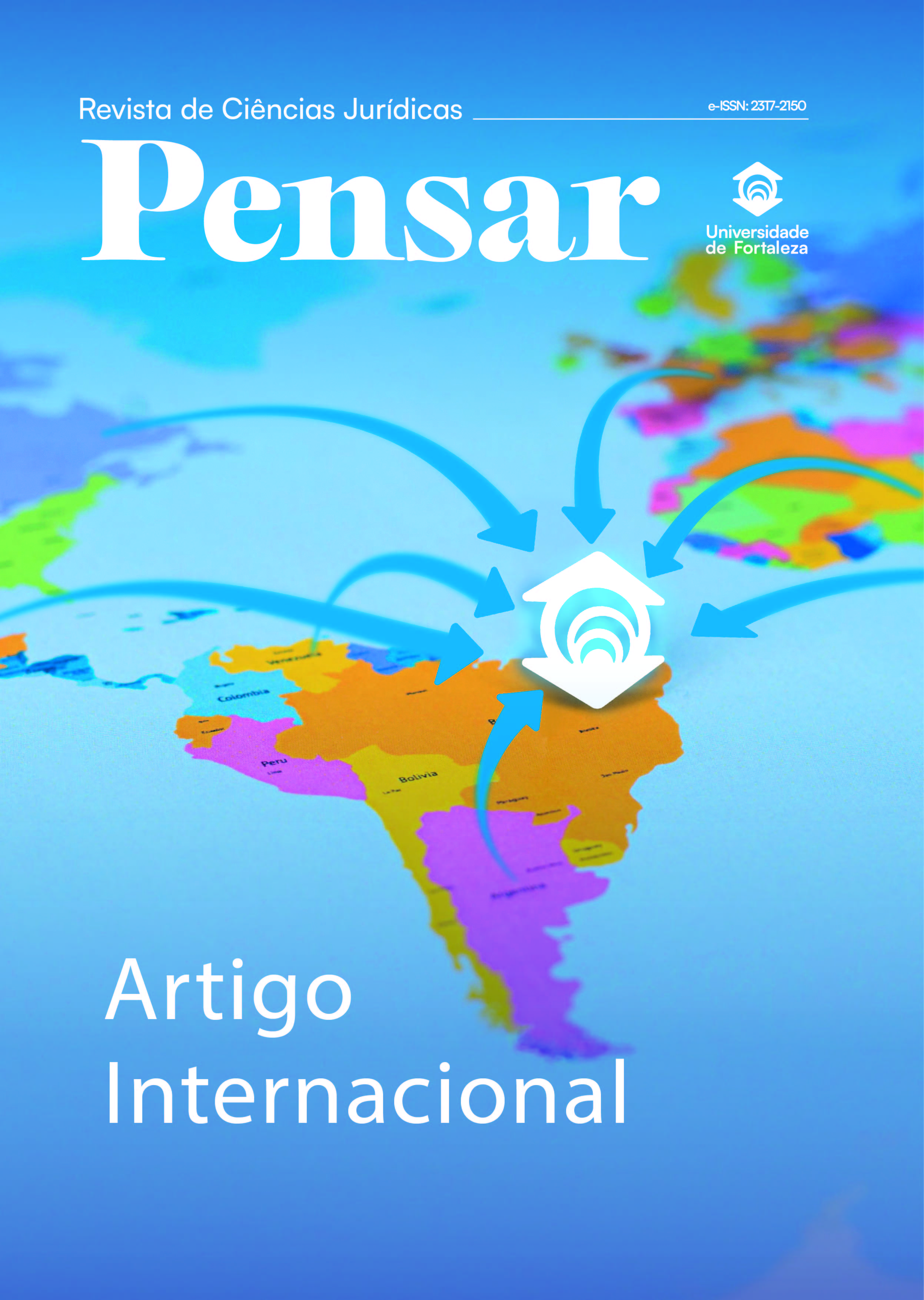Social Perceptions of Mediation in Brazil and Poland: Cultural Barriers and Opportunities for Sustainable Conflict Resolution
DOI:
https://doi.org/10.5020/2317-2150.2025.16324Keywords:
mediation, conflict resolution, legal culture, Brazil, PolandAbstract
Mediation has gained increasing recognition as an alternative method of dispute resolution, yet its acceptance still depends on cultural and institutional legitimacy. This article compares the Brazilian and Polish experiences, highlighting how legal frameworks, public trust, professional attitudes, and cultural traditions influence the development of mediation. The analysis shows that resistance is not merely a legal issue, but one rooted in adversarial legal cultures and limited public awareness. At the same time, both countries display promising opportunities: in Brazil, the rise of community mediation and digital platforms; in Poland, the active role of judges and the support of European institutions. By examining these contrasts, the study suggests that the consolidation of mediation requires not only laws and policies, but also strategies capable of reshaping professional practices and strengthening social trust.
Downloads
References
BROOME, B. J. Negotiating the nexus: Symbiotic relationship of theory and practice in conflict management. Negotiation and Conflict Management Research, [s. l.], v. 10, p. 252-264, 2017. DOI: https://doi.org/10.1111/ncmr.12105
CASER, U.; CEBOLA, C. M.; VASCONCELOS, L.; FERRO, F. Environmental mediation: an instrument for collaborative decision making in territorial planning. Finisterra - Revista Portuguesa de Geografia, [s. l.], n. 104, p. 109-120, 2017. DOI: https://doi.org/10.18055/Finis6969
CICHOBŁAZIŃSKI, L. Mediacje w sporach zbiorowych. Częstochowa: Wydawnictwo Politechniki Częstochowskiej, 2010.
CICHOBŁAZIŃSKI, L. Resolving collective disputes in Poland: A narrative perspective. In: MÜLLER, A. P.; BECKER, L. (org.). Narrative and innovation: New Ideas for Business Administration, Strategic Management and Entrepreneurship. Wiesbaden: Springer Fachmedien, 2013. p.119-129.
DHIAULHAQ, A. et al. Resolving industrial plantation conflicts in Indonesia: Can mediation deliver? Forest Policy and Economics, [s. l.], v. 41, p. 22-30, abr. 2014. DOI: https://doi.org/10.1016/j.forpol.2014.01.003
ELKOURI, F.; ELKOURI, E. A. How arbitration works. Washington: Bureau of National Affairs, 2017.
INTERNATIONAL LABOUR ORGANIZATION. ILOSTAT. Geneva: ILO, 2018. Disponível em: https://www.ilo.org/. Acesso em: 2 maio 2025.
POLAND. Law about the settlement of collective labor disputes, created on 23 May 1991. Journal of Law, Geneva, 1991. Disponível em: https://www.ilo.org/dyn/natlex/docs/ELECTRONIC/22401/91766/F-1456565262/POL22401%20Eng.pdf. Acesso em: 2 fev. 2025.
HILL-YARDIN, E. L. et al. A chat (GPT) about the future of scientific publishing. Brain, Behavior, and Immunity, [s. l.], v. 110, p. 152-154, 2023. DOI: https://doi.org/10.1016/j.bbi.2023.02.022
LANKAŠOVÁ, R. Mediation in work environment. In: GREGAR, A.; HORÁK, M. (eds.). Work and organization psychology 2017: – Work potential and its changes over time. Proceedings of the 16th International Conference WAOP, Zlín, 24-25 maio 2017. Zlín: Tomas Bata University, 2017. p. 333-340.
LUND, B. D.; WANG, T. Chatting about ChatGPT: How may AI and GPT impact academia and libraries? Library Hi Tech News, [s. l.], v. 40, n. 3, p. 26-29, 2023. DOI: https://doi.org/10.1108/LHTN-02-2023-0016
MCGEE, R. W. Is ChatGPT biased against conservatives? An empirical study? An Empirical Study. SSRN, [s. l.], 15 fev. 2023. DOI: http://dx.doi.org/10.2139/ssrn.4359405
OPENAI. ChatGPT: GPT-3.5-based. OpenAI, San Francisco, 2023. Disponível em: https://www.openai.com/. Acesso em: 12 maio 2025.
POLAND. Constitution of Republic of Poland, created on 2 Apr. 1997. Constituição da República da Polônia. SEJM, Dziennik Ustaw, 2 Apr.1997. Disponível em: https://www.sejm.gov.pl/prawo/konst/angielski/kon1.htm. Acesso em: 2 fev. 2025.
RITTEL, H. W. J.; WEBBER, M. M. Dilemmas in a general theory of planning. Policy Sciences, [s. l.], v. 4, n. 2, p. 155-169, 1973. DOI: https://doi.org/10.1007/BF01405730
SOCIAL DIALOGUE LIBRARY – MINISTRY OF LABOR AND SOCIAL POLICY. Mediation in Poland. Warsaw: MRPiPS, 2008. p. 45.
SOCIAL DIALOGUE LIBRARY – MINISTRY OF LABOR AND SOCIAL POLICY. Informator. Warsaw: MRPiPS, 2016. p. 50.
SURAMEERY, N. M. S.; SHAKOR, M. Y. Use ChatGPT to solve programming bugs. International Journal of Information Technology & Computer Engineering (IJITC), v. 3, n. 1, p. 17-22, 2023. DOI: https://doi.org/10.55529/ijitc.31.17.22

Downloads
Published
Issue
Section
License
Copyright (c) 2025 Pensar - Revista de Ciências Jurídicas

This work is licensed under a Creative Commons Attribution-NonCommercial 4.0 International License.
This is an open-access article distributed under the terms of the Creative Commons Attribution 4.0 International License (CC-BY 4.0), which permits unrestricted use, distribution, and reproduction in any medium, provided the original work is properly cited.
For more information, please visit: https://creativecommons.org/licenses/by/4.0/















